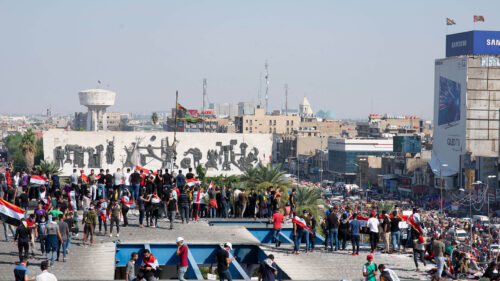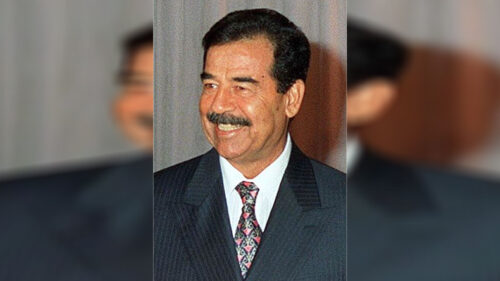In a striking political development over the past two months, the Iraqi government has initiated steps to formally integrate the Popular Mobilization Forces (PMF) into the national army structure. This act raises urgent questions about state sovereignty, civil-military relations, and the future of Iraq’s fragile institutions. On March 24, 2025, Iraq’s parliament convened its initial session to deliberate the controversial legislation aimed at formally integrating the PMF into the state’s official security apparatus, a perilous move. That same day, U.S. officials urged Baghdad to guarantee that PMF-affiliated groups operate under the direct authority of the Iraqi commander-in-chief, the prime minister, rather than maintaining allegiance to Iran.
The proposed legislation marks a pivotal moment in Iraq’s post-ISIS political trajectory, one that raises serious questions about the country’s sovereignty and the future of its security institutions. Crafted under the shadow of Iranian influence, the bill seeks to cloak the PMF, a network of heavily armed militias, some designated as terrorist groups, with the full legal authority of the Iraqi state.
What does it mean for Iraq’s fragile democracy when someone elevates a force operating with sectarian motives and external loyalties to the status of a national institution? How will this affect Iraq’s already strained relations with Western allies and Gulf Arab partners, who view the PMF as an extension of Iran’s Revolutionary Guard Corps?
If passed, the law could entrench a parallel chain of command within Iraq’s armed forces, making future reform virtually impossible and deepening the sectarian divide. It signals a shift away from state-building toward factional entrenchment, one that may come at the cost of Iraq’s long-term stability, international credibility, and independence. The real question, then, is not just how long Iraq will remain under Iran’s shadow, but whether this bill will mark the point of no return.
The roots of a crisis: unpacking the real threat
The PMF, also known as Hashd al-Sha’abi, constitutes a predominantly Iran-aligned Shi’a paramilitary conglomerate whose ambiguous legal and institutional status continues to pose a profound challenge to the coherence of the Iraqi state. Simultaneously portrayed as a national defense force and criticized as a proxy for foreign influence, the PMF occupies a liminal space between legitimacy and lawlessness, an entity some view as a terrorist organization due to its opaque operations, sectarian affiliations, and alleged human rights violations.
The PMF has consistently undermined Iraq’s efforts to normalize relations with Western powers and Gulf Arab states, or to chart a course independent of Iranian hegemony. This obstructionism has manifested in repeated attacks on U.S. diplomatic missions and military personnel, as well as in the sabotage of Gulf-led investment initiatives in Iraq’s central and southern provinces.
Over the past two years, the PMF has not only consolidated its political leverage, positioning itself as a dominant institutional force, but has also strengthened its economic networks, extending its influence across various sectors. This confluence of paramilitary capacity, economic reach and political ascendancy is transforming the PMF from a wartime auxiliary into a parallel state apparatus, one that increasingly blurs the line between national defense and factional hegemony.
PMF today: shifts in strategy and influence
Though formally recognized as part of the Iraqi state, the PMF has leveraged this official status not to serve national interests, but to tighten its grip on Iraq’s political, economic and security architecture. Under the guise of legitimacy, the PMF has obstructed foreign investment, particularly from Gulf states and operated with near impunity across state institutions, cultivating deep patronage networks and influencing electoral outcomes.
Facing growing pressure from the United States and Israel, the PMF has quietly adjusted its strategy. Rather than provoking confrontation abroad, the group has turned inward, consolidating its domestic power base and recasting its public image. Today, it positions itself not as an Iranian proxy, but as the indispensable guardian of Iraq’s Shi’a population against the specter of Sunni extremism. Yet this strategic rebranding raises troubling questions: Is the PMF moderating its behavior, or merely entrenching itself more deeply, under a more palatable narrative?
What the PMF bill means for Iraq
By capitalizing on its formal status as a state-sanctioned entity, complete with government salaries and budgetary allocations, the PMF has steadily transformed into one of Iraq’s most formidable politico-military actors. Far from being a neutral component of national defense, the PMF’s various factions have weaponized their institutional legitimacy to block any political or economic initiative that might weaken Iran’s influence, effectively casting themselves as the arbiters of Iraq’s foreign policy direction and regional alignments.
The proposed Authority Law only deepens this trajectory. If passed, it would grant the PMF and its estimated 238,000 personnel the legal and structural authority to operate as a parallel military force, autonomous, deeply politicized, and loyal to its leadership rather than the state. It would enshrine within Iraq’s security sector an entity reminiscent of Iran’s Islamic Revolutionary Guard Corps (IRGC), not as a temporary emergency force created during the ISIS war, but as a permanent, quasi-ministerial institution shielded from reform and insulated from oversight. The implications are stark: this legislation could fundamentally alter the balance of power in Iraq, institutionalizing a force with regional ambitions and foreign loyalties at the very heart of the state.
If this legislation passes, Iraq won’t just see the legitimization of a controversial militia; it will face the quiet dismantling of the state itself, brick by brick, from within.
Embedding an ideologically driven, Iran-aligned force into the very architecture of Iraq’s security sector risks transforming the republic into a garrison state, where military loyalty is no longer to the people or the constitution, but to foreign-aligned commanders and opaque political agendas. This is not simply a policy misstep; it is a historic gamble with Iraq’s sovereignty, one that could ignite future civil strife, paralyze reform, and permanently fracture the state’s already tenuous legitimacy. Suppose this is the new definition of national unity. In that case, Iraq may soon wake to find its republic replaced by a shadow state, militarized, sectarian and beholden to powers beyond its borders.
[Liam Roman edited this piece.]
The views expressed in this article are the author’s own and do not necessarily reflect Fair Observer’s editorial policy.
Support Fair Observer
We rely on your support for our independence, diversity and quality.
For more than 10 years, Fair Observer has been free, fair and independent. No billionaire owns us, no advertisers control us. We are a reader-supported nonprofit. Unlike many other publications, we keep our content free for readers regardless of where they live or whether they can afford to pay. We have no paywalls and no ads.
In the post-truth era of fake news, echo chambers and filter bubbles, we publish a plurality of perspectives from around the world. Anyone can publish with us, but everyone goes through a rigorous editorial process. So, you get fact-checked, well-reasoned content instead of noise.
We publish 3,000+ voices from 90+ countries. We also conduct education and training programs
on subjects ranging from digital media and journalism to writing and critical thinking. This
doesn’t come cheap. Servers, editors, trainers and web developers cost
money.
Please consider supporting us on a regular basis as a recurring donor or a
sustaining member.
Will you support FO’s journalism?
We rely on your support for our independence, diversity and quality.








Comment